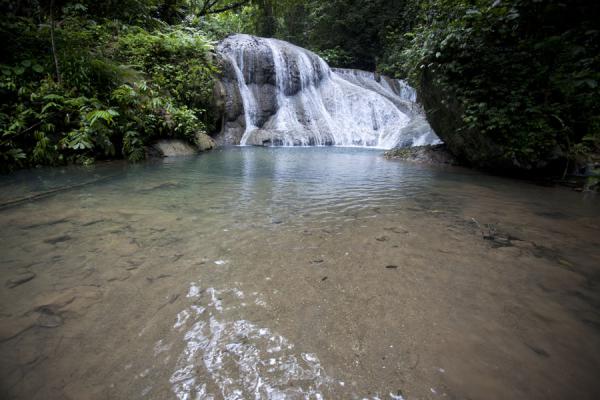CUSTOMARY land issues have been highlighted as a major hindrance to providing safe and clean water services to many Solomon Islanders.
This was highlighted in the list of challenges facing water access and delivery by the Minister of Mines, Energy and Rural Electrification Hon. Bradley Tovosia at the 6th Water and Wastewater Ministers Forum in Nadi, Fiji, early this week.
Delivering the Government’s country statement at the Forum, Tovosia said Solomon Islands has a long way to go in providing quality water services and is facing challenges in extending services to rural areas and to poor and vulnerable populations who are most at risk of being left behind.
“Our water supply and sanitation sector have specific challenges and barriers, which affect the success of programs and projects; customary land ownership issues and tribal differences always hinder developments in the rural areas,” Tovosia said.
He added that there is little willingness and support from Land Owners to work closely with the Government and Solomon Water to secure and sign long-term leases on catchment areas. Land Owners often opt for easy and fast money options like logging and sawmilling which often damage the catchment areas and severely impact water production and quality.
Minister Tovosia said addressing these specific challenges requires ongoing engagements with landowners and other stakeholders who will be taking leading roles in the implementation of water sector developments in the rural areas.
A Joint Monitoring Programme (JMP) for the country in 2021 reported that five years into the Sustainable Development Goals (SDGs), the world including Solomon Islands is not on track to achieve SDG targets 6.1 and 6.2 and achieving universal coverage by 2030.
This will require a quadrupling of current rates of progress in safely managing drinking water services, safely managed sanitation services and basic hygiene.
-GCU Press

